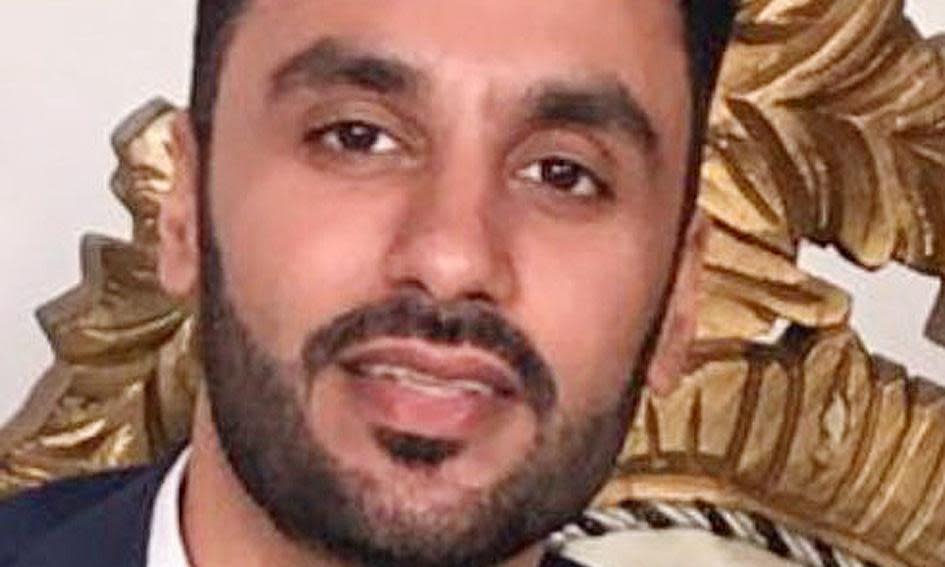British activist denied bail after years in Indian jail without trial

Delhi’s high court has denied bail to the British activist Jagtar Singh Johal, who has been imprisoned in India for nearly seven years, in seven cases brought against him by the country’s National Investigations Agency.
The ruling has shocked family and supporters who claim it should jolt the British government into recognising that Johal is not receiving justice at the hands of the Indian legal system.
The court acknowledged that his trials have been severely delayed but ruled this was not sufficient grounds to grant bail, according to Reprieve, the human rights organisation that has been fighting against his long detention without trail.
Johal, 37, from Dumbarton in Scotland, was arrested in connection with targeted killing cases in Punjab in 2016 and 2017. It is alleged that these offences were part of a conspiracy by the Khalistan Liberation Force (KLF), an organisationthe Indian police allege Johal was a member of.
Johal had previously been bailed in two cases. In March 2022, the high court of Punjab and Haryana granted bail on the basis that Johal had been imprisoned without trial for five years and that this violated his right to access to justice.
In August 2023, in an appeal filed by the National Investigations Agency to the March 2022 order, India’s supreme court challenged prosecutors to present credible evidence against him, and as they were unable to do so, upheld the lower court’s order granting bail.
As a result, Wednesday’s ruling appears to be directly at odds with the supreme court’s 2023 order, meaning the latest high court ruling could be subject to challenge in the supreme court.
Reprieve has insisted the cases against Johal are based on one false confession he gave after being tortured with electricity by police, who brought petrol into the cell and threatened to burn him alive.
“Prosecutors have now had almost seven years and have presented no physical evidence, no email trail, no CCTV footage, no record of a bank transfer, and no recordings of telephone calls linking Jagtar to the supposed conspiracy,” Reprieve said.
The officer who arrested Johal in 2017 admitted in court that there was no evidence against him when cross-examined under oath, Reprieve said. United Nations legal experts have recognised that he is arbitrarily detained and is being targeted for his human rights activism.
His brother, Gurpreet Singh Johal, said: “My brother should not be in prison. All he ever did was stand up for human rights, as we have said from day one. Prosecutors can’t come up with any evidence against him because there isn’t any.
“Today’s ruling is a harsh reminder that the system is stacked against him. Prosecutors are able to drag out the case, potentially for decades, to deny him justice. Even these simple bail applications have taken more than a year to be considered because the prosecution has sought so many needless adjournments.”
Harriet McCulloch, of Reprieve, said: “These bail rulings should shock the UK government into action. To deny Jagtar bail when there is no end in sight to his trials and no credible evidence has been presented is clearly unjust. India is keeping a British human rights activist in arbitrary detention while his government stands by.”


